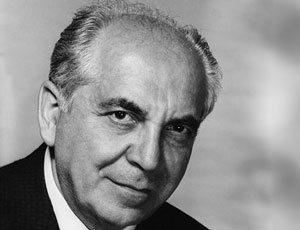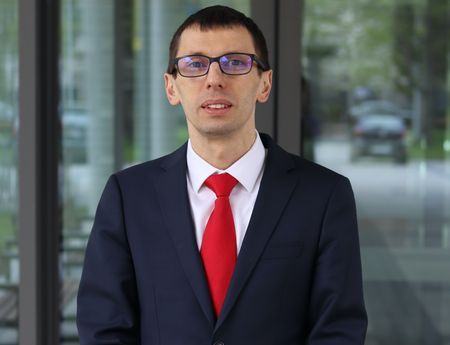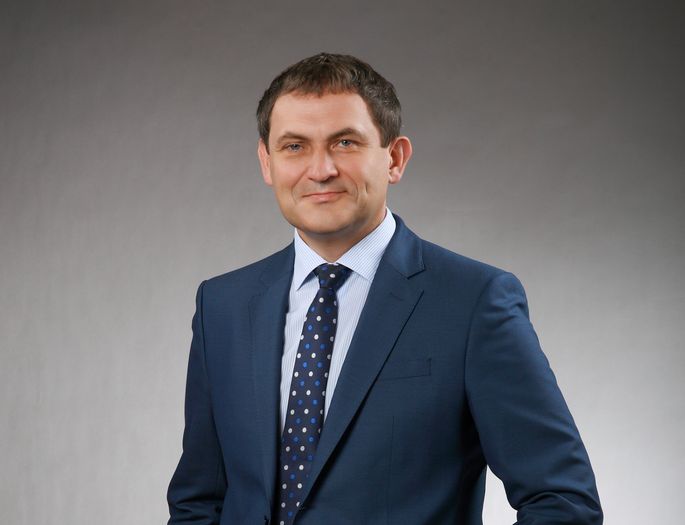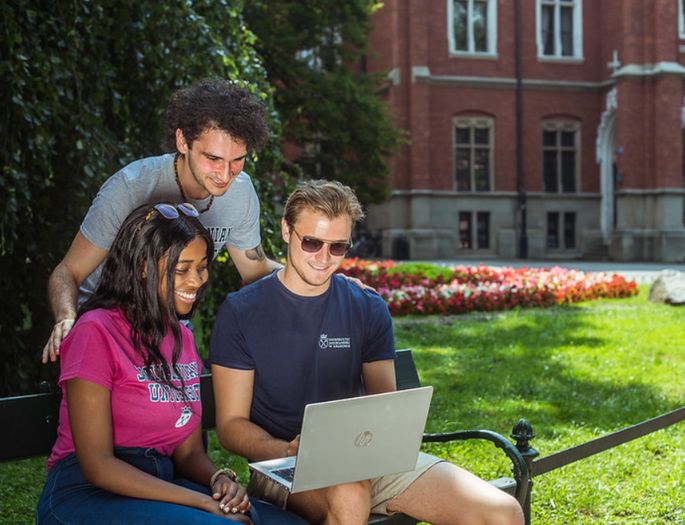
Ludwik Gross insisted that some types of cancer can be caused by viruses. He embarked on a life-long quest to discover a virus responsible for leukaemia in mice. Although the entire scientific world was sceptical, he held on to his theory until he was able to prove it.
Ludwik Gross was born on 11 September 1904 in Kraków. His parents were lawyers. In 1929, he graduated in medicine from the Jagiellonian University. For three years, he practiced at the St. Lazarus General Hospital. In 1932, he began working intermittently at the Pasteur Institute in Paris. He also edited a medical supplement to the "Ilustrowany Kurier Medyczny" (Illustrated Medical Courier) newspaper, in which he relayed much information about his research.
The research was not treated seriously by anyone, who insisted that viruses play a very important role in cancer etiology. It was only later, when he was living in the United States, that he was able to perform an experiment in which he successfully identified a virus responsible for leukaemia in mice. The discovery quickly garnered him international fame and respect.
After World War II broke out, Gross left Poland and settled in the USA. From 1941 to 1943, he worked at the Christ Hospital in Cincinnati, Ohio, where he developed his research on cancer. During the war, he served in the US Army as a medical officer. In 1946, he was appointed the head of Cancer Research Division in the Veterans Administration Medical Center in New York. This allowed him to conduct his research in a fully equipped laboratory.
Research
Ludwik Gross insisted that some types of cancer can be caused by viruses. He embarked on a life-long quest to discover a virus responsible for leukaemia in mice. Although the entire scientific world was sceptical, he held on to his theory until he was able to prove it.
In 1951, he published a paper entitled Pathogenic properties, and ‘vertical transmission of the mouse leukemia agent. In it, he described an experiment in which he transferred leukaemia from a sick mouse to a healthy one via cell-cell interaction, using a cell filtrate. Thus, he became the discoverer of oncoviruses.
Ludwik Gross identified two animal viruses which serve as models of the ones that affect humans. The murine leukaemia virus' counterpart is the HTLV-1 virus, while the murine polyomavirus' counterpart is the Merkel cell polyomavirus, which causes most types of neuroendocrinal skin cancer.
The encyclopaedic textbook Oncogenic Viruses written by Ludwik Gross is still considered to be an excellent source material when it comes to cancer-inducing viruses. Although he is recognised worldwide, Ludwik Gross is not well-known in Poland. He was an Honorary Member of the Polish Oncologic Society.
Scientific awards
- R.R. de Villiers Foundation (Leukemia Society) Award for Leukemia Research (1953)
- Walker Prize of the Royal College of Surgeons of England in London (1961)
- Pasteur Silver Medal of the Pasteur Institute in Paris (1962)
- WHO United Nations Prize for Cancer Research (1962)
- Bertner Foundation Award (1963)
- Special Virus Cancer Program Award of the National Cancer Institute (1972)
- Albert Lasker Basic Medical Research Award (1974)
- William B. Coley Award (1975)
- Principal 1978 Paul Ehrlich-Ludwig Darmstaeder Prize in Frankfurt
- Griffuel Prize in Paris (1978).
- Elected to the National Academy of Sciences (1973)
- French Legion of Honor (1977).





